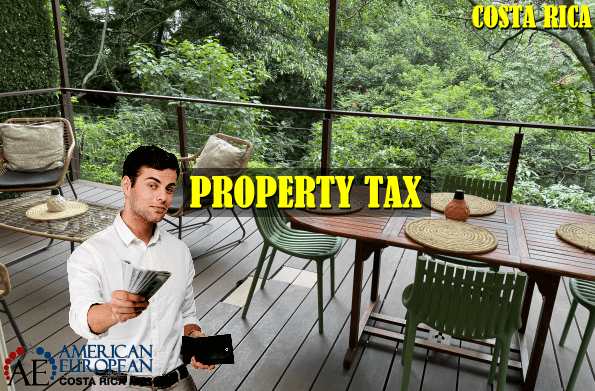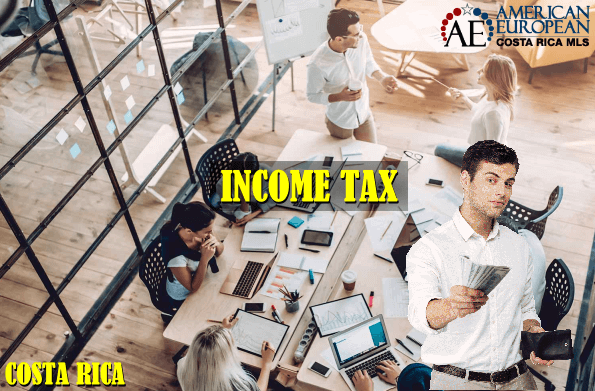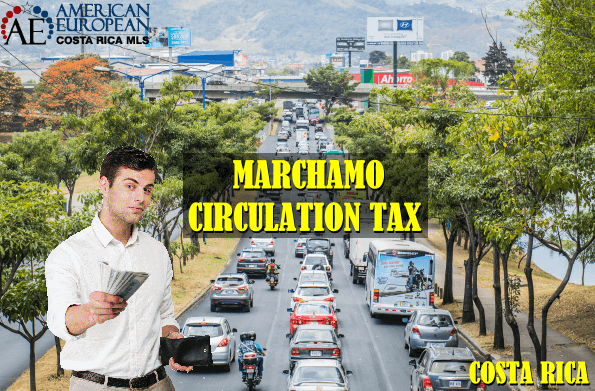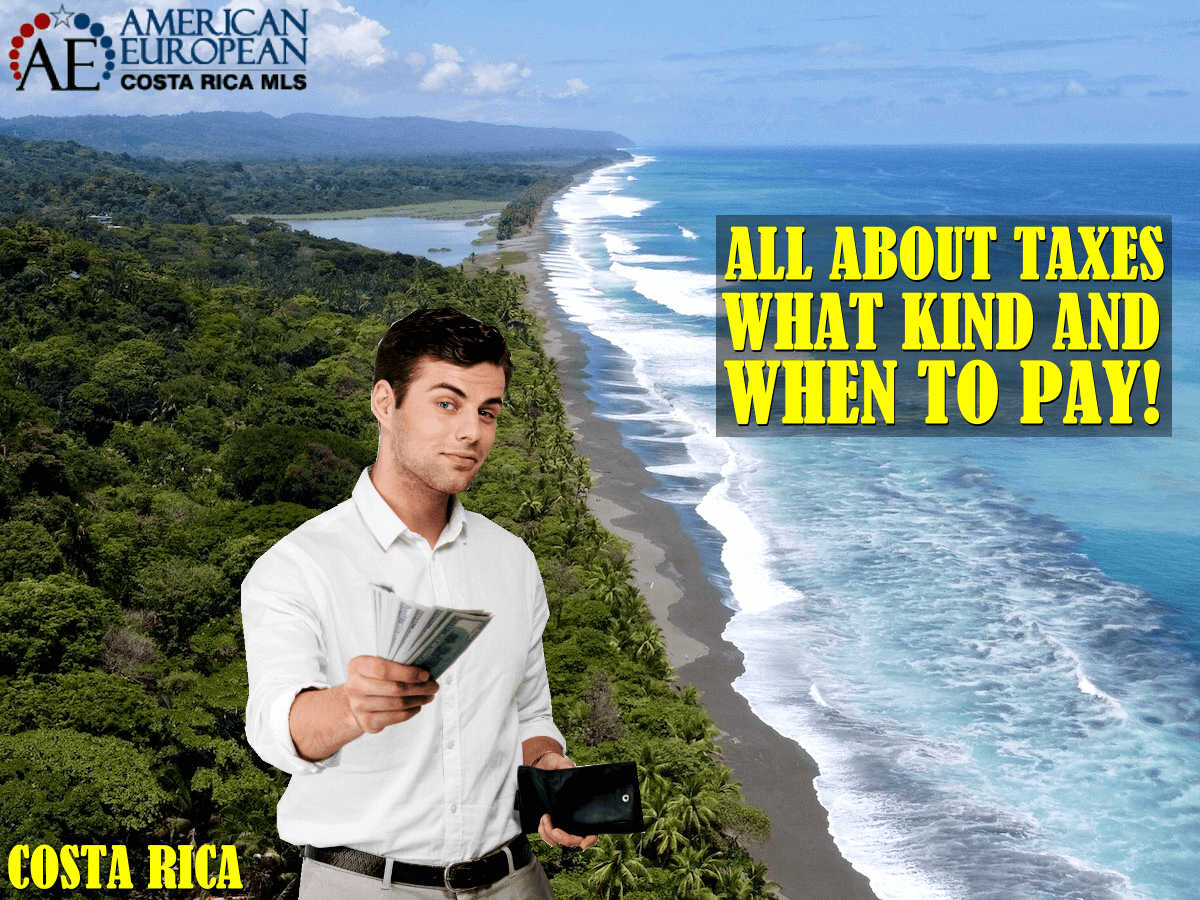Estimated Reading Time: 11 Minutes
Do you want to know everything about taxes in Costa Rica? We’re now in 2024, and the information below is updated.
In this article, I will cover what type of taxes the local government charges and when they must be paid. You must pay taxes when you work, own a business, own a property, or sell that property. And, of course, you don’t want to pay them too late.
Do your homework and learn which taxes you have to pay. Do NOT expect to receive a tax notification in the mail because our tax authorities will not send you anything. You’re supposed to know when to pay and how much and take care of it! Fines are low here, but if you don’t pay because you didn’t know you had to, you might get into trouble.
Are you planning to buy real estate? Or maybe start a business? Do you have to pay any tax when you live here, even though you don’t have any income? Which taxes do you have to pay when you own property when doing business or are someone’s employee? Before you move here, you should learn all about taxes in Costa Rica.
This guide offers all the necessary information to understand what taxes to pay, how much, and when you might have to pay if you live in our beautiful country. It’s easy to always be up to date on all your Costa Rican tax payments and understand the basics. There are quite a few links to websites in Spanish, so feel free to use Deepl to translate.

Since we are in the Costa Rica real estate business, let’s start with property tax and other related taxes first:
Property Tax
The property tax, or Impuesto sobre Bienes Inmuebles, is a ridiculously low tax in Costa Rica. Property owners pay a 0.25% property tax over the value registered in the Municipality where the property is located.
The value has to be updated by the property owner every 5 years. This is mandatory. This article will explain the declaration, which includes how to calculate and where to get the values. Some municipalities are now connected to the National Property Register. So, as soon as a property is sold, the Municipality will know what the property sold for.
You do NOT receive a notification from the city telling you that you must pay property tax, although you might expect them to.
Property tax and municipal tax both have to be paid every quarter. You can request the annual amount from your municipality before the end of January. When you pay annually, you’ll receive a 2% discount. Very few municipalities offer an online system to pay your property tax.
Municipal Services
Besides the property tax, you’ll also be charged for other municipal services. Because the municipalities are autonomous, the law allows them to calculate the charges for those services as they see fit. Therefore, each item’s charge rate per million colones can vary in each municipality. Here is an example of how some municipalities calculate the rate:
- Road cleaning (Aseo de Vias) – Property value x ¢131 / 1,000,000
- Park maintenance (Servicio Parques) – Property value x ¢12.24 / 1,000,000
- Storm sewer (Alcantarillado) – Property value x ¢21.10 / 1,000,000
- Garbage pickup (Basura) – A fixed amount
When?
The property tax and municipal services must be canceled on or before March 31st, June 30th, September 30th, and December 31st, or you can pay them all together in January of each year. Nonetheless, it’s good to know that the fine for late payments is really low.
Luxury Home Tax
We have a Luxury Home Tax, or Impuesto Solidario, only for luxury homes. Supposedly, the government uses it to eradicate the shacks of the poor.
Article 7 of the law explains that the periodicity for filing the declaration is three years, constituted by the triennia. The current three-year period comprises the years 2022, 2023, and 2024. For the year 2023, the scale was updated by Decree No. 43370-H published in Scope 262 of La Gaceta No. 246 of December 22, 2021, and as of the taxable value of more than ₡148,000,000.00, it is subject to this tax.
If your home fits in this category, calculating this tax is not so simple. You can go to this page on our site for all the necessary information on this tax. Homes are exempt from Luxury Home Tax up to ¢148.000.000 – (this is the value of the construction). Learn about calculating this tax on the Tax Office’s website on the Impuesto Solidario.
When?
The luxury home tax has to be paid every year before January 15th through the ATV system.

Corporation Tax
Those who own a corporation have had to pay corporation tax since 2017. Ask your accountant for the latest updates if you have a corporation with a commercial or business activity.
Inactive Corporation
Having an inactive corporation probably means that you own a car, a boat, or a property through a corporation in which you are a shareholder, and the corporation is not active businesswise.
Non-Payment
Have you paid your mandatory corporation tax every year? If you don’t, the local tax authorities will put a legal mortgage (a lien) on your property so that you cannot sell it until you’re up to date.
Mandatory Declaration
You must be a citizen or a legal resident of Costa Rica to comply with the mandatory declaration of beneficial owners and shareholders, for which you need a digital signature.
If you’re not a citizen or a legal resident, and you own a corporation in our country, contact your lawyer or click on the banner below for an excellent service that will take care of everything for you:
How much?
Do you have an active or an inactive corporation?
Check here how much to pay in January 2024 over the year 2023. The Corporation Tax Costa Rica must be paid annually for the first 30 days after January 1st. Active corporations pay a little bit more than inactive ones
For 2023, the basic salary of ¢462,200 is used. For 2023, the tax to pay is:
a) 15% of the basic salary for those corporations not registered in RUT (inactive corporations) = ¢69,330
b) 25% of the basic salary for those corporations that pay income tax, with a gross income of less than 120 basic salaries. – impuesto sobre la Renta (active corporations) = ¢115,550
c) 30% of the basic salary for those corporations that pay income tax, with a gross income between 120 and 280 basic salaries = ¢138,660
d) 50% of the basic salary of those corporations that pay income tax, with a gross income of 290 salaries or more = ¢231,100
When?
The Corporation Tax Costa Rica must be paid annually for the first 30 days after January 1st.
Timbre Educacion y Cultura
Every corporation has to pay the Timbre de Educacion y Cultura annually. So if you have a corporation that owns a car, a boat, or a property, you’ll have to pay it EVERY year, during February or March at Banco de Costa Rica.
Capital Gain Tax
Since 2019, investors must pay capital gain tax – impuesto de ganancias de capital- when selling an investment property. The sale of your principal residence is exempt from this tax for citizens and residents (but you must prove that you have lived there). Investment property must pay the tax. So, if you read in an online article that we don’t have a capital gain tax, the article is from before 2019!
Domiciled sellers have to pay the tax after closing. A domiciled owner is a citizen, a resident, or a corporation.
When the seller is non-domiciled, the buyer (or their attorney) must retain the tax and pay it for the seller.
The law imposes a capital gain tax of 15% over the difference between the purchase and the sales prices. However, if the property was acquired before the law was implemented, which is July 1, 2019, then the taxpayer has the one-time option to sell the property and pay a 2.25% tax on the property’s sales price.
The seller pays this tax to the tax authorities after closing. To do so, you must fill out the D162 form on the ATV system, which will calculate the tax to be paid. I suggest you ask an accountant for assistance. Once you have submitted the form to the system, you can pay the tax at Banco de Costa Rica.

Income Tax
When you retire here, no matter where you come from, you probably already pay taxes on your retirement income. This exempts you from paying income tax here. Yes, retirees do NOT pay any taxes on their foreign retirement income. You only pay income tax if you receive an income in this country. So, if you live here, work online, and receive your income in another country, you do not have to pay income taxes here.
Fiscal period
Our fiscal year starts on January 1 and ends on December 31st.
How?
The income has to be declared with Form D-101. Here is a Guide on income tax for those who have lucrative activities.
for When to pay
The annual income tax is declared and paid each year within two months and fifteen calendar days of the ordinary fiscal period, which runs from January 1 to December 31 of each year.
Employees
Are you an employee? Then your employer should deduct the taxes from your salary. The first ¢817.000,00 income is exempt. We don’t have the deductibles you might know from your home country, like studies, how many children you have, or your mortgage.
Individual Income Tax – Self-Employed Income
Do you work in your name? We don’t have the deductibles you might know from your home country, like studies, how many children you have, or your mortgage.
Check here for taxable income for employees or self-employed 2023 (payable in 2024).
Corporations
The taxable income for corporations changes every year, so you should always check with your accountant first.
Do you have your own business? Then, the income tax is divided into several stages: 5% – 10% – 15% – 20% and 30%, so you can best check here.

Marchamo – Circulation tax
Every year, you must pay circulation or road tax on any vehicle you own. This tax is charged by INS (the government-owned insurance company).
The deadline to pay the marchamo is December 31. Late payments carry a 10% fine per month.
Starting Jan. 1, drivers without the marchamo sticker displayed on their vehicles will be fined and have their license plates removed.
Vehicle owners can learn what they must pay on the INS website. You can pay the Marchamo in over 2,000 places.
Import Tax
Allow me to tell you a bit about the import tax system here. One thing is sure: once you live here, you pay quite a bit of taxes on everything you buy. It speaks for itself that the government needs income to pay too many employees, build roads, and run the country. So, they get most of their income from taxing all imported articles.
That means all cars, jewelry, clothing, liquor, and food products are taxed. Some are higher than others and are therefore more expensive here than in other countries. Every article has a different tax; this article gives you an idea about the percentages. Do your homework on this before you decide to move to Costa Rica.
If you bring your household with you when you move here, it will be taxed. Bring them in as used articles, and you’ll do fine.
Depending on how you dress, many of us go to the States at least once a year for shopping. In another article, you can learn how to move your household without paying too much import tax.
Sales Tax, now IVA
In other countries, you pay state tax, sales tax, VAT, BTW, or whatever you call it. We pay on almost everything 13% Value Added Tax or IVA (Impuesto Valor Agregado). This includes products and services. The IVA will show on every invoice when you pay.
When you sell your house through a real estate agent, you must pay the agent the real estate commission PLUS 13% IVA. The real estate agent is a collector for the state, like a store or a restaurant. This is the law.
Do you have a business in Costa Rica? Or maybe a commercial or residential rental property or a vacation rental? Starting in 2019, any rental income property pays income tax and 13% VAT. The tenant pays this VAT on top of the rent.
Service Fee – Tips
I call it a service tax even though it is a mandatory tip. The 10% restaurant/bar service tip ensures the waiter and bartender receive a tip automatically. This 10% service fee is ALWAYS included in your restaurant or bar bill. It’s a great idea, although it does nothing to promote better services.
If you feel you received incredible service from your waiter or bartender, feel free to tip extra, but it is unnecessary.
The Tax Collector
The tax collector, Ministerio de Hacienda, is not very good at collecting taxes; there is enormous tax evasion on all levels. They are always trying to create new taxes, like most governments. Nonetheless, you are responsible for keeping track of what type of taxes you must pay, how much, and when.
There are always proposals like another gas tax to build new roads, a tax on power bills to create fire departments in smaller towns and many others. Unfortunately, the money is in the wrong place because of budget shortages everywhere. Our country is 40 years behind in its tax system; if you compare it with others, its growth is not as we wish.
It’s the reason for never having money to build new bridges, maintain roads, have up-to-date equipment to work with and train their employees. During 2020, Covid 19 has made matters worse. The Central government has tried raising more taxes and controlling tax evasion through a central invoicing system. We’re also getting closer to a cashless society, which means more controls.
I expect this article about taxes in Costa Rica to help track what tax you need to pay and when. We have all the knowledge you need to guide you through purchasing your new home in this incredible country.
Contact us now. We appreciate your real estate business.
Used in images: Image by drobotdean on Freepik


















